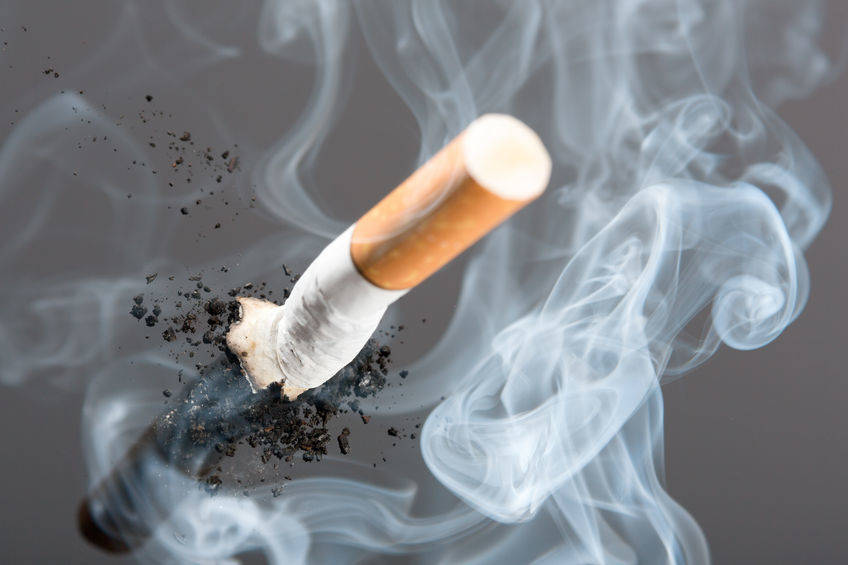It’s a well-established fact that secondhand smoke is a serious health hazard.
That’s why, a year ago, Sen. Peter Micciche, R-Soldotna, easily moved Senate Bill 63 through the normally anti-regulatory Senate majority. The statewide ban on smoking in public places would very likely become law if Rep. Gabrielle LeDoux, R-Anchorage, wasn’t blocking it in the House Rules Committee which she chairs.
But this story is less about an obstructionist legislator than the risks we face by the politicization of science.
“Tobacco use is the leading cause of preventable disease, disability, and death in the United States,” the Center for Disease Control still claims. And yet “nearly half a million Americans die prematurely of smoking or exposure to secondhand smoke” every year. The annual bill for medical treatment of smoking-related diseases in adults is “nearly $170 billion.”
Ledoux’s isn’t challenging those findings. It’s a matter of letting local governments decide if existing state regulations adequately protect public health in their jurisdictions.
State law already prohibits smoking at governments meetings, heath care facilities and public elevators. In schools it’s only allowed in areas where children can’t go. And in most other public places, it’s only permitted in designated smoking areas.
Ten communities have ordinances more restrictive than that. Juneau’s ban on smoking in bars, restaurants, and private clubs was challenged but was upheld by the state Supreme Court. Anchorage takes it further by prohibiting smoking in all enclosed workplaces.
At all levels, these laws and ordinances are anchored in science, not politics.
The first studies in the U.S. linking smoking to lung cancer were published in 1950. But like all medical and scientific journals, those reports were highly technical. It wasn’t until an article about it appeared in Reader’s Digest that the general public became aware of the possible health risks of smoking.
In response to public concerns, the Tobacco industry created its own research committee. Later renamed the Council for Tobacco Research, it was not an independent body of scientists. But with the help of politicians from tobacco growing states, their so-called research was inserted into the public health debate.
Similar attempts to discredit science are happening today.
For instance, in 2015, the Lancet Oncology medical journal published conclusions by the World Health Organization stating the key ingredient in Roundup, a widely-used herbicide manufactured by Monsanto, is a probable carcinogen. Last month, House Science Committee Chairman Lamar Smith, R-Texas, argued the report reflected an anti-industry bias that relied on “unsubstantiated claims, which are not backed by reliable data.”
Smith earned a law degree in 1975. Three years later he was elected chairman of the Republican Party in Bexar County, Texas and has been in politics ever since. Without any credentials to criticize the work of scientists, he’s helping Monsanto influence of party loyalists in Congress and the news media.
That didn’t happen with tobacco. Those medical researchers had had bipartisan support. Over industry objections, they gave Congress the justification to make laws requiring warning labels on cigarette packages, prohibit cigarette advertising on television and radio, make the cigarettes to minors illegal, and eventually ban smoking in federal workplaces and on all airline flights in and out of the US.
Even though it’s taken half a century to get here, it’s progress we’ll never reverse. And it’s put a mountain of practical knowledge with easy reach. With all that information available, I’m not sure SB 63 will make much of a difference.
Plus, there are plenty of other public health and safety issues that deserve as much or more attention. Our government needs to empower more science on the effects of herbicides, pesticides, and food additives. We need to continue researching the cause and impacts of climate change instead of calling it a hoax.
And in recognition of the thousands of students who walked out of school this past week advocating for gun control, Congress should repeal the Dickey Amendment that’s effectively prevented the CDC from studying gun violence for twenty years.
As we’ve learned from the tobacco story, big businesses are apt to deny the health risks associated with the products they manufacture in order to protect their profits. And anyone who doesn’t want our government telling us whether or not to buy them should put their trust in scientists, not biased politicians claiming the science is biased.
• Rich Moniak is a Juneau resident and retired civil engineer with more than 25 years of experience working in the public sector. He contributes a regular “My Turn” to the Juneau Empire. My Turns and Letters to the Editor represent the view of the author, not the view of the Juneau Empire.

